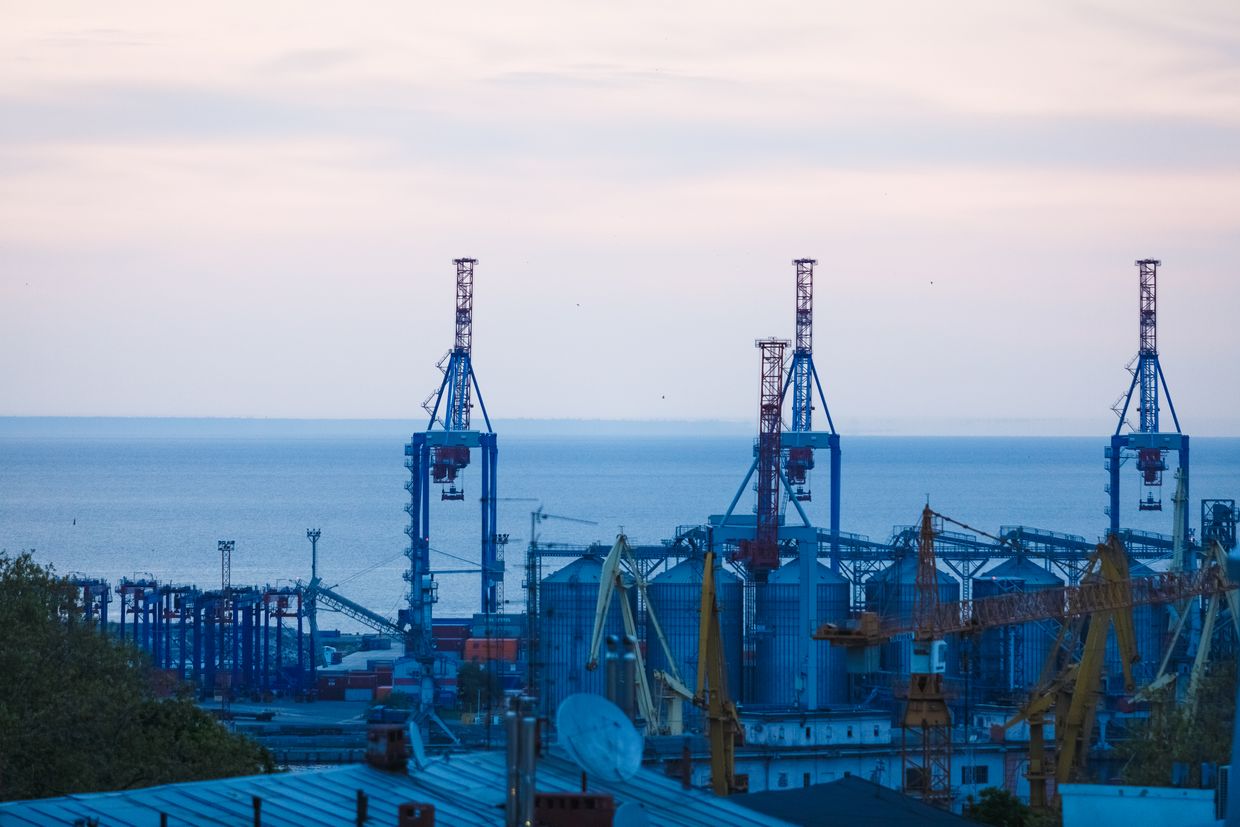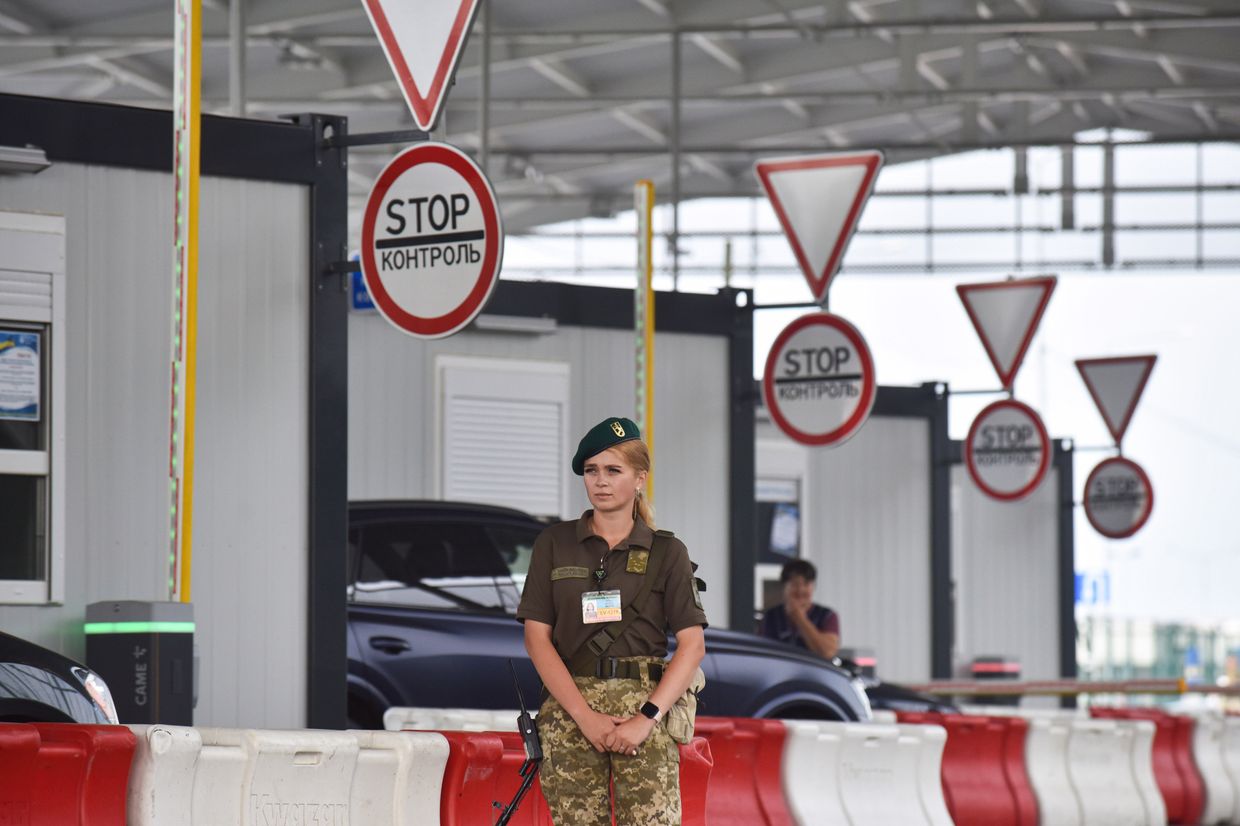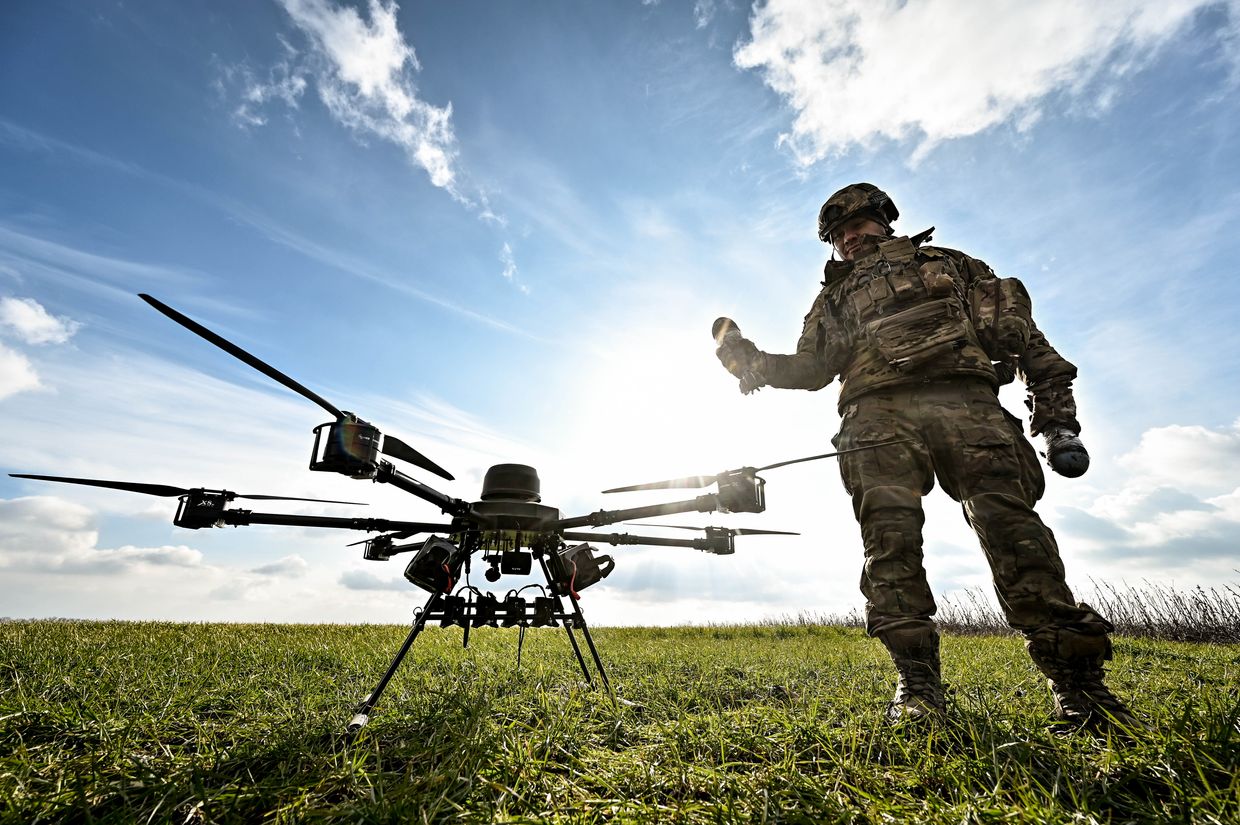Ukraine Business Roundup — Ukraine braces for winter freeze
The following is the Oct.
15, 2024 edition of our Ukraine Business Roundup weekly newsletter. To get the biggest news in business and tech from Ukraine directly in your inbox, subscribe here. Ukraine is set to face its toughest winter since the start of the invasion as Russia eyes cutting off its nuclear power after already taking out half its electricity generation sector in attacks.
Russia hasn't directly struck nuclear plants with missiles and kamikaze drones but is increasingly targeting nearby infrastructure, such as substations containing crucial equipment that connect nuclear plants to the grid. What could that mean for Ukraine? Large-scale attacks against nuclear infrastructure would freeze out Ukrainians and cause a humanitarian crisis if the country can't swiftly repair and protect those assets. If Russian attacks successfully disconnect all the power plants from the grid, then Ukraine's only stable power source is gone, said Warsaw-based energy analyst Wojciech Jakobik.
"(Nuclear power) is a baseload capacity, which is irreplaceable by renewables, other sources, and especially not by energy imports," he told the Kyiv Independent. "With a smaller nuclear capacity in place, Ukraine will have less flexibility and less ability to stabilize (energy) generation." Ukraine has lost nine gigawatts of power generation, including eight thermal plants and five hydro plants, due to Russian strikes this year.
"We're in a world where (Ukraine) has a deficit of functioning infrastructure. This is going to be the hardest winter yet," International Energy Agency (IEA) Chief Economist Tim Gould told the Kyiv Independent. Read business reporter Dominic Culverwell's full story here.
 Elevators in the Odesa port on May 13, 2023, in the city of Odesa, Ukraine. (Yurii Stefanyak/Global Images Ukraine via Getty Images)
Elevators in the Odesa port on May 13, 2023, in the city of Odesa, Ukraine. (Yurii Stefanyak/Global Images Ukraine via Getty Images)
Russia goes after Ukraine's grain exports, again
Russia has stepped up its attacks against civilian ships and port infrastructure around Odesa in recent days, in an apparent attempt to cause damage to Ukraine's exports.
"The purpose of these attacks is to reduce our export potential," said Oleksii Kuleba, the minister for the development of communities, territories, and infrastructure. "This is a deliberate attempt to provoke a food crisis in those parts of the world that are directly dependent on Ukrainian grain supplies," he said. What has been hit? Over the past week, Russia has carried out six attacks in the area, killing at least 15 people and injuring over 30.
The missile attacks have damaged civilian vessels, including the Palau-flagged Optima, which was hit in an earlier attack on Oct.
7, and the Saint Kitts and Nevis-flagged Paresa which was carrying 6,000 metric tons of corn for export. It's hard to tell yet if these attacks will have a significant impact on arrivals to Ukraine's ports, Bridget Diakun, maritime risk analyst at Lloyd's List Intelligence, told our business reporter Dominic Culverwell. After all, ships traveling to and from the country's ports in the Black Sea know there are risks.
"From my conversations with the shipping industry, there's not yet a huge amount of concern although they acknowledge the situation is becoming riskier," she said. "Depending on how the next days/weeks play out could change things."
 A border guard is seen at the newly renovated "Krakovets - Korchova" checkpoint on the Ukrainian-Polish border near the village of Krakovets in Lviv Oblast, Ukraine on Aug.
A border guard is seen at the newly renovated "Krakovets - Korchova" checkpoint on the Ukrainian-Polish border near the village of Krakovets in Lviv Oblast, Ukraine on Aug.
16, 2022. (Pavlo Palamarchuk/SOPA Images/LightRocket via Getty Images)
Customs reform
At a time when state coffers are starving for money to fund Ukraine's survival, smuggling is costing the country billions of dollars a year in lost customs fees. How much we talking? Through bribery or lying, smugglers avoid an estimated £2.4 to £3 billion in customs payments each year as they smuggle everything from cigarettes and iPhones to perfume and food across the border undeclared or mislabeled.
"Customs is perhaps the single biggest cash cow that brings corrupt money into Ukraine's political system. It's the largest tax-evasion scheme in the country," said Josh Rudolph, head of the transatlantic democracy working group of the U.S.-based think tank German Marshall Fund. With mounting internal and external pressure on Ukraine to reign in corruption at the border, parliament has passed an extensive new reform bill to overhaul the State Customs Service.
The bill was submitted to the president on Sept.
23 and will take effect after he signs it into law, though its effects of reforms may take years to show up in the state's budget. Read more about the reforms here.
 Lunca Bar in Kyiv, Ukraine in 2023. (Personal archive of Lunca Bar Team)
Lunca Bar in Kyiv, Ukraine in 2023. (Personal archive of Lunca Bar Team)
Kherson bar finds new life in Kyiv
In late summer of 2022, Lunca Bar owner Yehor Lohvynovskyi and his team were taking a walk in Kyiv when they spotted an empty courtyard -- "We should open a bar in a place like this!" one of his coworkers said half-jokingly. None of them knew at the time that the joke would turn into real business plans less than a year later in February 2023.
The bar's original location, the southern city of Kherson, while liberated from Kremlin forces in November 2022, was under constant Russian shelling. Russia's destruction of the Kahkovka dam later in 2023 flooded the bar. Rebuilding in Kyiv was the only path forward for the business if it wanted to stay open.
Today, Lunca Bar stands in the heart of Kyiv, its vibrant courtyard off of Yaroslaviv Val Street filling up during the warm season. Inside, the team recreated the cozy atmosphere of the Kherson location, with some of the bar's original tables and the walls still adorned with artwork from the city's artists. Read the full story here.
 A serviceman launches a Vampire drone in Zaporizhzhia, Ukraine, on Feb.
A serviceman launches a Vampire drone in Zaporizhzhia, Ukraine, on Feb.
2, 2024. (Ukrinform/NurPhoto via Getty Images)
Q&A with foreign defense investors
Ukraine has become a hotbed of defense innovation, as Russia's deadly invasion fuels a rapid development of new battlefield technologies. But with its economy drained by the war, the country desperately needs foreign investment if it wants to take its innovation to the next level and become a global leader in the defense sector. The government has launched several initiatives to encourage foreign investment, including Brave1, an accelerator program.
The Kyiv Independent's reporter Andrea Januta sat down with two foreign investors who have been working as strategic partners with Brave1 to discuss the defense tech sector in Ukraine and how to attract further investment. Despite lower levels of foreign investment in the sector than one would hope, the two are ebullient about the country's prospects. "I want to say on the record that we believe that in the next five years, the Ukrainian defense sector will attract half a billion dollars of venture capital," Andre Pienaar, co-founder and chief executive of investment firm C5 Capital said.
The Kyiv Independent: How would you describe Ukraine's start-up defense sector right now, and what has changed as it matures? Michael Hewitt: Ukraine has gone from having a traditional defense industry to now shifting its attention to the innovation of asymmetric warfare, drone warfare -- air, sea, even subsea. What we're looking to do now is lift that to the next phase of venture capital: growth, scalability, and following exactly what President Zelensky said he wanted to do, which was build capacity in the defense industry.
Everything from artillery shell factories to building up the capacity to defend the country and be part of the European defense industry. The Kyiv Independent: A few weeks ago, BraveOne announced Ukraine's defense tech industry had attracted £12 million in private investments since the beginning of the war. This number has grown compared with last year but is still very low compared to other countries.
What do you think is stopping investors? Andre Pienaar: I think there are two things that we can do in Ukraine to scale this capital. One is to do as much mentoring among founders as possible about lessons learned, mistakes made, and how to work with outside capital and venture capital.
The second thing is that the government does as much as it can to lift restrictions on the export of Ukrainian intellectual property and know-how so that Ukrainian founders can build companies that can really go global and become unicorns. Read the full interview here.
What else is happening
US tech firm Anduril announces selling drones after successful tests in Ukraine
U.S. defense tech company Anduril will begin selling small, autonomous drones after successfully testing them in Ukraine, Reuters reported on Oct.
10. According to Anduril, their new drones will be capable of flying for 40 minutes and covering a range of 20 kilometers (12 miles).
Anduril raised £1.5 billion at the beginning of August in the largest defense tech funding round ever publicized.
Ukraine's parliament approves 'historic' tax hike
The Verkhovna Rada, Ukraine's parliament, passed in the second reading a bill to increase taxes for the first time since the start of the full-scale invasion as it looks to raise more money for its budget needs. The bill is very unpopular among the business community that feels it unfairly targets taxpayers as the government continues to fail to go after illegal businesses that avoid taxes. The bill still needs to be signed by the president before it goes into effect.
Ukraine sells state-owned titanium producer in privatization auction to fund state coffers
The sale of UMCC Titanium -- one of the largest titanium producers in the world -- is one of the most high-profile privatizations after the iconic Hotel Ukraina in Kyiv was sold recently in an auction, and is the first successful auction of a large industrial holding in many years.
Cemin Ukraine, a Neqsol Holding company owned by Azeri businessman Nasib Hasanov, who also owns Vodafone, Ukraine's second-largest mobile operator, was the sole bidder in the auction.
The sale is part of the government's "Great Privatization" initiative to shore up funds for the wartime budget.
World Bank approves fund to facilitate G7's £50 billion loan for Ukraine, Reuters reports
"This is a game-changing amount of money," Josh Lipsky, senior director of the Atlantic Council's GeoEconomics Center, told Reuters, referring to the combined effect of the new World Bank fund and an announcement the previous day that the EU had approved the 35 billion euro loan as part of the G7 loan. "It's real resources on the ground that can make a difference," Lipsky said.
Rome to host next Ukraine Recovery Conference on July 10-11, 2025
The event follows previous conferences in London in 2023 and Berlin in 2024 and is aimed at mobilizing support for Ukraine's post-war reconstruction and recovery efforts. "Looking at future peace and prosperity also means looking at reconstruction, and I am happy to announce that the 'Ukraine Recovery Conference' will be held in Rome on 10-11 July 2025," Italian Prime Minister Giorgia Meloni said on Oct.
10 after meeting President Volodymyr Zelensky.
Subscribe to the Newsletter
Ukraine Business Roundup
Subscribe